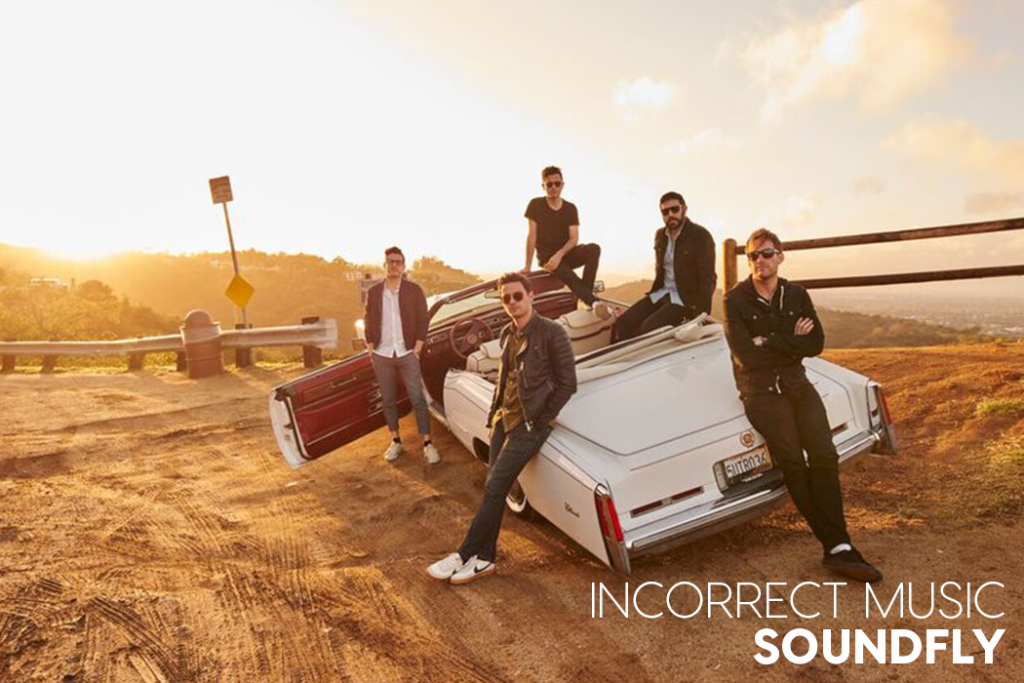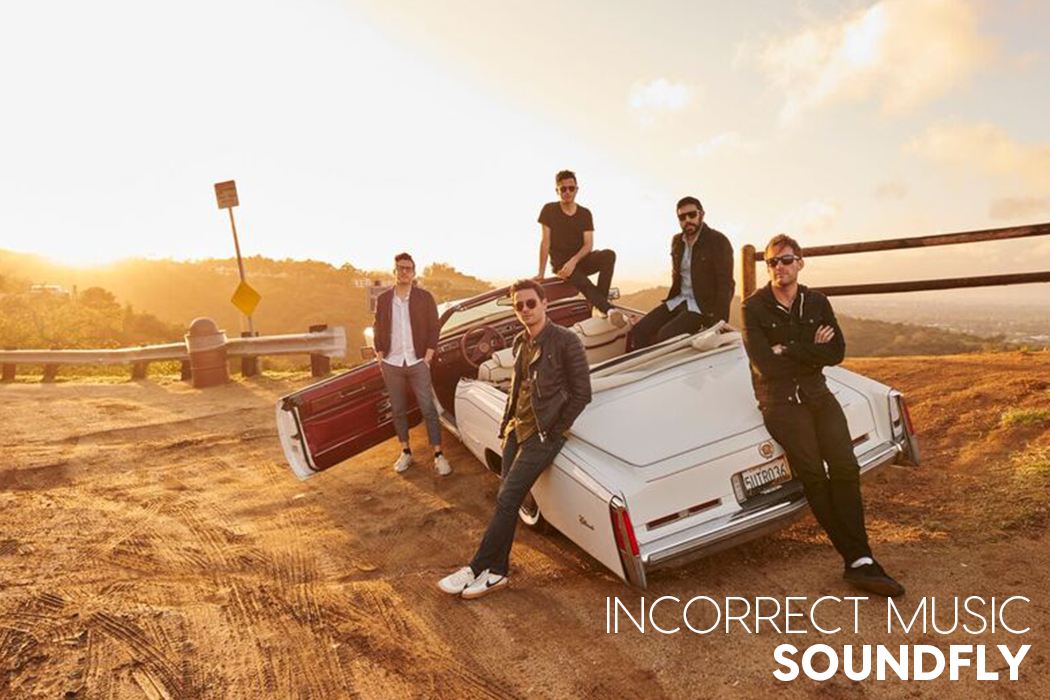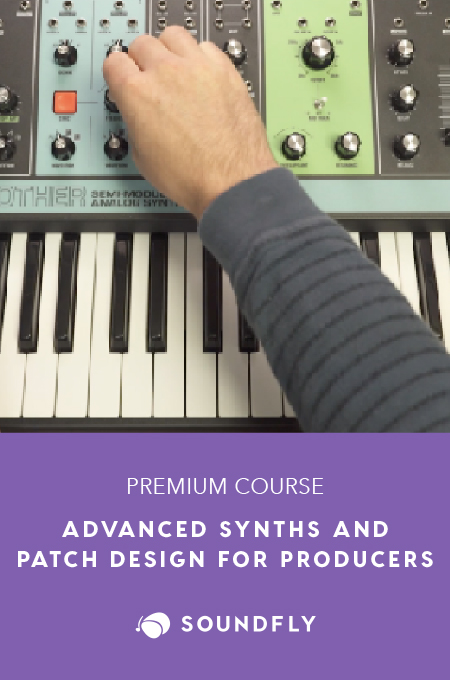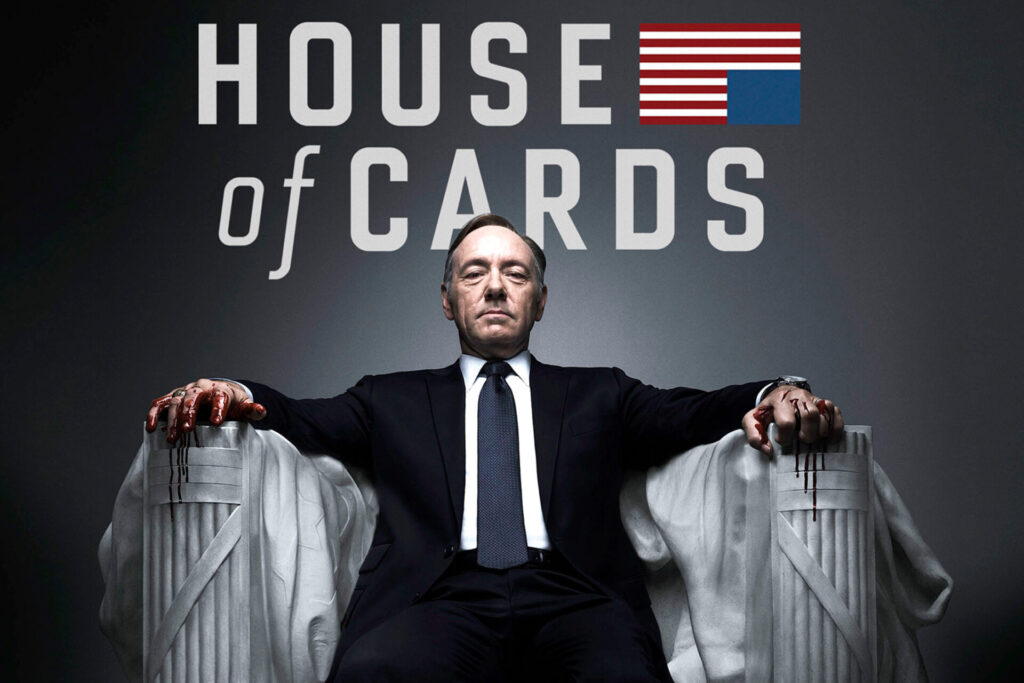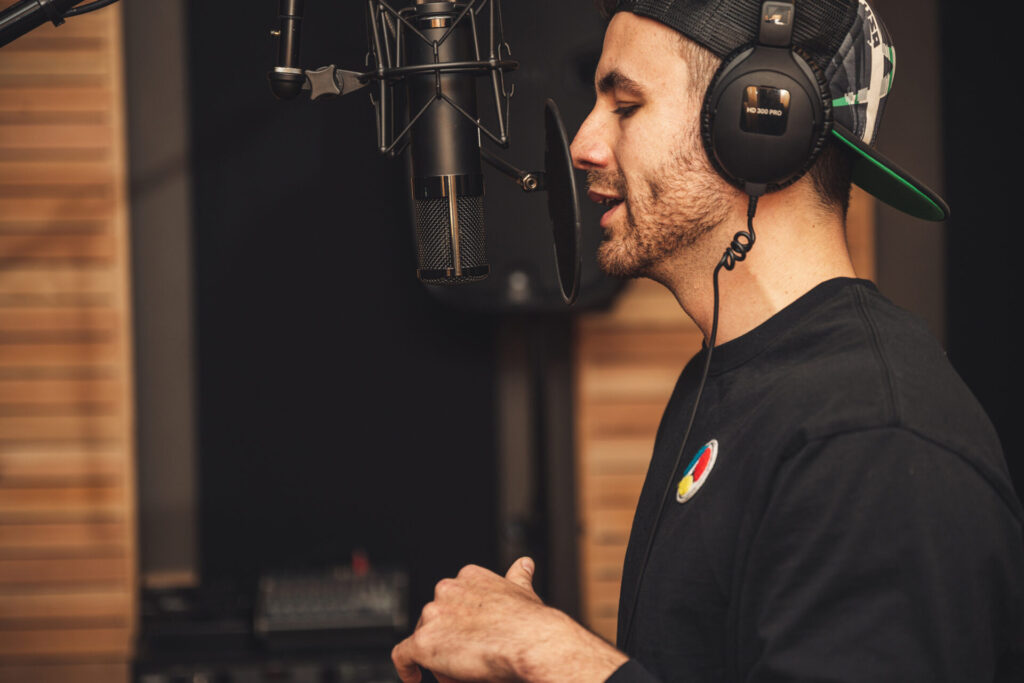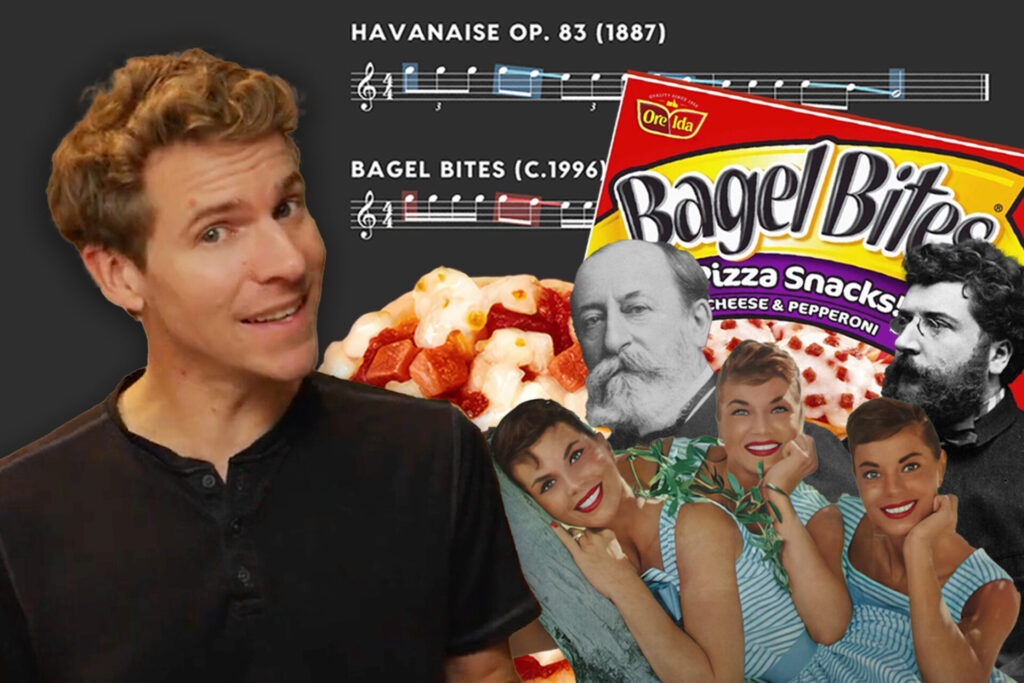Welcome back to Soundfly’s new interview series, Incorrect Music, curated by guitarist, singer, and composer Lora-Faye Åshuvud (of the band Arthur Moon). In this series, we present intimate conversations with artists who are striving to push the boundaries of their process and craft.
Interview by Angela Mastrogiacomo
These days, the “indie” aesthetic can often feel just as formulaic as the mainstream pop to which it was originally created in opposition. With their latest release, however, Canadian indie rock outfit Arkells seeks to subvert and undermine those formulas in creative ways. By subtly incorporating cut-and-paste production techniques more likely to be heard in hip-hop and experimental electronic music, for example, or by taking lyrical inspiration from social critique instead of the typically white and/or male navel-gazing perspective shared by many of their indie contemporaries, Arkells makes high-energy rock that’s markedly unique and sonically something of their own creation.
Soundfly talked to the band about work ethic, honesty, humor, and their latest release via Universal Records Canada, Morning Report.
– Lora-Faye Åshuvud
So, you guys have been touring seemingly non-stop since the beginning of the year!
We like staying busy. Most people might get 10 to 15 days of vacation every year, and we’re no different.
For me, an artist who can put on a killer live show has my attention forever, and it was your performance at SXSW that really caught my attention, even though I’d already been a fan prior. What mistakes do you think emerging artists make in their live shows, and how can they create a show that will build buzz and keep people coming back?
Ha, that’s a tough question! I think the important thing is to identify the things in your live show that make you feel uncomfortable or awkward and fix it for the next show. Our band is always trying to maximize joy and the artistry of performance, and that is an ongoing, evolving journey.
+ Learn more on Soundfly: Get your best ideas recorded quicker and better with our free course, Demo Recording 101.
I want to talk about another aspect to that — the lineup. I caught your hometown show this past February with Frank Turner, and between the two of you, there’s this really special chemistry. How can bands put together a thoughtful artist lineup, especially in their early days?
I learned a ton from Frank on that tour. We are kindred spirits in many ways but it was inspiring to see a performer who was as fearless as Frank. He showed me that it’s the frontman’s job to set the tone for the night. He literally recites rules for the crowd at the beginning, and they love it. He’s got so many tricks up his sleeve from all the touring he does, and I think we are building a similar arsenal.
Would you be open to sharing a story from when you were just starting out that really challenged you at the time, but perhaps looking back you realize was part of the process?
There’s a lot of rejection in this business. Radio stations won’t play you, labels don’t like you, managers don’t have time for you. But the important thing I learned early on is that you gotta put your head down and work. Anything that distracts you from the joy of the job will only keep you from moving forward. I love all aspects of the job, but the nucleus is the song and the performance. Spend most of your time doing that.
In the early days, we spent way too much time bickering about things that ultimately were a distraction from the central thing.
How does Morning Report break from previous work?
Each record is a reaction to the last record and a reflection of the music we’re inspired by in that moment. On Morning Report, I sang differently on songs like “Drake’s Dad” and “Private School.” There’s a sense of humor to the record that didn’t exist on earlier songs. All of that comes from a place of honesty and yearning to grow and evolve. It would honestly be so boring if we just made the same record over and over.
What about your music might you consider to be “incorrect”?
Some of the character moments on our albums are quite goofy. My drawl in “Private School” is very odd. The “ooh ooh ooh oooh” in the post-chorus of “Never Thought That This Would Happen” is a funny Rick Danko imitation. I try to sing like David Byrne in the second verse of “Knocking at the Door.” They’re not musically pretty moments, but they’re unique and memorable.
“There’s a lot of rejection in this business. Radio stations won’t play you, labels don’t like you, managers don’t have time for you. But the important thing I learned early on is that you gotta put your head down and work. Anything that distracts you from the joy of the job will only keep you from moving forward.”
You’ve talked about not over-demoing when you enter the studio, and how that was something you feel happened with High Noon to the point that you got bored with some of the songs and lost some creativity with it. Can you offer any other insight for bands entering the studio?
A good producer can offer some objectivity, so I recommend paying a little extra for that. Some ideas need to be really flushed out, but sometimes the first idea can be the best idea — don’t forget that!
Do you feel that the business side encroaches on the creative side with the more success you have?
Nah, I think successful stuff in this industry are songs that sound fresh and unique. Obviously, there are some confines to work within if you’re trying to achieve mainstream appeal, but the watered-down/copy-cat stuff doesn’t get very far. We’re always trying to push ourselves to create sounds and write stories that simply make your ears tingle.
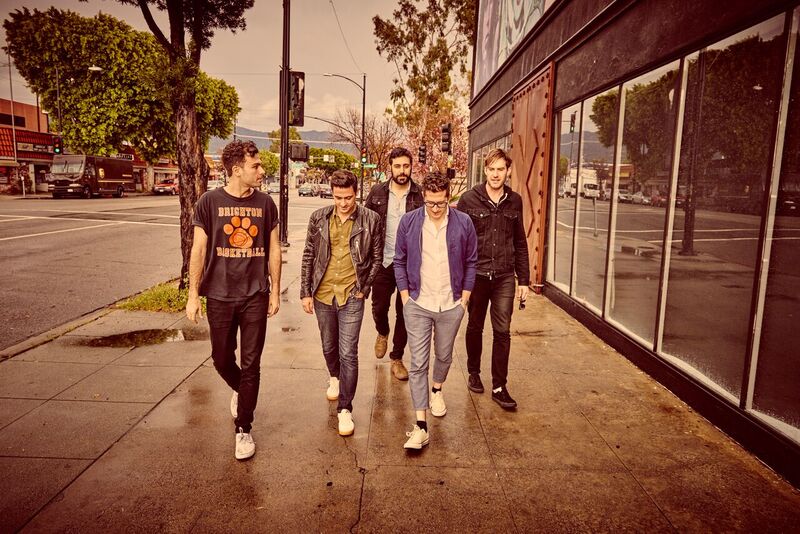
Max, you’ve touched on the insecurity that a lot of younger bands, and even yourself in the early days, struggle with when writing. How were you able to overcome that and get comfortable with being uncomfortable?
I realized that, ultimately, the thing that everyone should be striving for is to be the best version of yourself. The older I get, the more it pays off. For example, we played a show opening for the National a few years ago, and in the weird inner-dialogue I was having with myself, I said, “Maybe I should be brooding like Matt Berninger, because their fans will like that.” But, of course, that’s a ridiculous idea.
Obviously, we are shaped by many influences, but you must recognize who you are at your core, and let that part shine.
A lot of emerging artists struggle with consistent and compelling social media content. How can artists keep their social channels engaging early on?
Collaborate with up-and-coming photographers and videographers. There are visual artists who are hungry for access and subjects. Own your own socials, and speak from an honest place. Talk about things that interest you. Celebrate things that you care about. Let people get to know who you are.
What’s the best piece of advice you’ve ever received in life or related to your music career?
“It would honestly be so boring if we just made the same record over and over.”
The music industry can often feel very cutthroat and unwelcoming. Do you have advice for overcoming that for bands who feel like they just don’t have thick enough skin for it?
The people working in the industry are just people. Often busy people. Don’t take things too personally. Like you, they have their own desires, sense of pride, ambitions. It’s good to remember that. No one spends as much time thinking about your career as you do, so don’t be hard on yourself if you feel dismissed. Keep it about the work.
What do you think is the biggest mistakes emerging artists make today, and how can they correct that?
Stop taking things too personally. Just keep working. Take notes from the greats. Don’t stop. Momentum is very important, and it’s up to you to create it. You’re the boss. Also, stop thinking about your “career narrative” as if you’re writing your autobiography. That’s just distracting. Just work.
Want to get all of Soundfly’s premium online courses for a low monthly cost?
Subscribe to get unlimited access to all of our course content, an invitation to join our members-only Slack community forum, exclusive perks from partner brands, and massive discounts on personalized mentor sessions for guided learning. Learn what you want, whenever you want, with total freedom.
